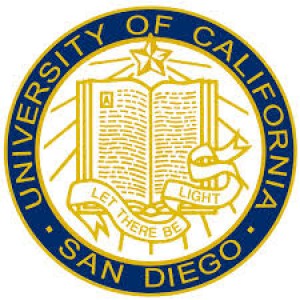 University of California San Diego (UCSD) has announced that their heart experts are currently available to answer questions related to heart health through social networks. A series of cardiologists and surgeons can be reached through @UCSDHealth on the academic facility’s Google+, Facebook, Twitter, Tumbler, LinkedIn and YouTube accounts.
University of California San Diego (UCSD) has announced that their heart experts are currently available to answer questions related to heart health through social networks. A series of cardiologists and surgeons can be reached through @UCSDHealth on the academic facility’s Google+, Facebook, Twitter, Tumbler, LinkedIn and YouTube accounts.
Among the experts available to answer questions from the community is the cardiologist and assistant professor of medicine, Pam R. Taub, MD, FACC, who has been dedicated to heart disease prevention. Through an evidence-based approach, Dr. Taub is focused on providing individual care, as well as minimizing reliance on drugs and procedures. Her studies have discovered epicatechin’s (a compound present in dark chocolate) capacity to improve the structure and activity of mitochondria in patients who suffered heart failure or who have diabetes.
Cardiologist and associate professor of medicine Anna McDivit, MD is one of the people responsible for the campaign “Go Red for Women,” which has been created by the American Heart Association to promote cardiovascular health in women. The cardiologist is dedicated to prevent, diagnose and treat atherosclerotic heart disease and congestive heart failure, as well as to provide health care prior and after solid organ transplant, together with UC San Diego Health System transplant teams.
Problems related to heart rhythm, such as palpitations, are the specialty of cardiologist and assistant clinical professor of medicine Jonathan Hsu, MD, MAS, who can help patients to not only identify but also treat these pathologies. Dr. Hsu’s studies are focused on the use of blood thinners as a way of preventing strokes in atrial fibrillation patients, as well as the most appropriate time to conduct a procedure called ICD implantation.
In addition, the assistant professor of surgery and neurosciences, director of neurovascular surgery and surgical director of neurocritical care Alexander A. Khalessi, MD, is available to clarify the use of two novel surgical methods used for the treatment of strokes. These consist of two devices, one to open blocked arteries, and another to treat aneurysms through minimally invasive surgery. He can also discuss his participation in the San Diego’s first “Stroke Camp,” a therapeutic vacation for stroke survivors and caregivers, as well as his involvement in the UC San Diego Health System’s Comprehensive Stroke Center.
By making all of these proven experts in heart health available to patients and end users on social media, UCSD hopes to accelerate education and awareness, giving people access to the expert information they are looking for online.


